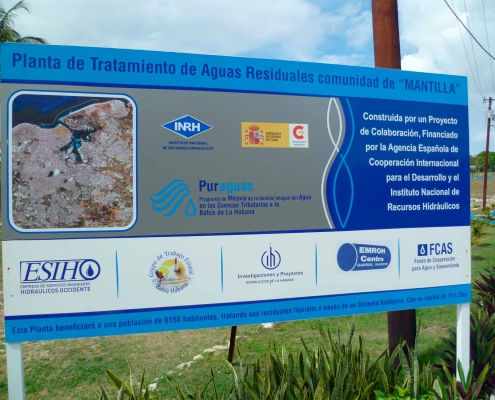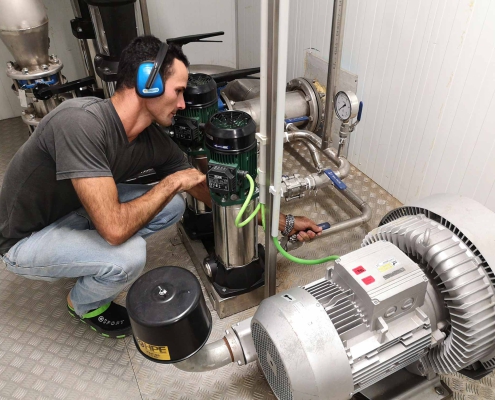OTHER PROGRAMMES ASSOCIATED WITH THE FUND

In addition to the aforementioned interventions, the FCAS also supports the development of two bilateral Technical Cooperation programmes that the AECID has been carrying out in Cuba since the end of 2019. The total budget for both is close to one million euros, and each is divided into a cash contribution and a contribution in kind.
These programmes are:
- Technical Solutions for the Treatment of Industrial Wastewater in Havana Bay, CUB-SECT-101, which has received a donation of 140,000 euros and is accompanied by a grant in kind (CUB-SECT-257).
- Support for Sustainable Water Resources Management in Cuba (CUB-SECT 102): It has received a 500,000 euro donation and a grant in kind from the Fund, CUB-SECT-237.
These funds are not directly provided by the FCAS, but have an impact on the water and sanitation sector and are complementary to the Water Fund’s operations, promoting its sustainability. These programmes have opened up new avenues of collaboration to strengthen the technical capacities of Cuban state institutions, as they mainly carry out technical activities that allow for the exchange of experiences and knowledge and institutional strengthening.
Both are implemented by the National Institute of Water Resources of Cuba (INRH) and are aimed at strengthening water management capacities. Thus, work is being done to review and update the sector’s regulatory framework, draft the Sanitation Master Plan for the province of Havana and train municipal operators in order to optimise their services. Within the framework of this support, a number of meetings were held with the INRH in December 2021, for which several technicians travelled from Spain to Havana to attend. The aim was to facilitate the exchange of experiences between specialists from both institutions in order to define the scope of future training, with emphasis on technologies and tools for water resources management, according to the needs identified by the INRH. This meetings will continue throughout 2022 with a visit from Cuban specialists to Spain, and the subsequent organisation of various training sessions.
COUNTRY CONTEXT

The majority of the Cuban population (97%) only has access to basic water services, and nearly 3% still do not even reach this standard, according to data from the UN-UNICEF Joint Monitoring Programme (JMP).
In January 2021, Cuba unified its dual currency system, whereby the Cuban convertible peso (equivalent to the dollar) and the Cuban peso coexisted, leaving only the latter active. This has entailed modifying all general programme documentation to fit the new parameters and the need to devote extensive efforts to various management tasks.
The Fund’s programmes are part of the Climate Change and Habitat action area of the Partnership Framework (MAP) between Spain and Cuba in the field of cooperation.

